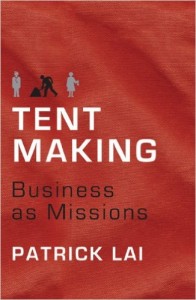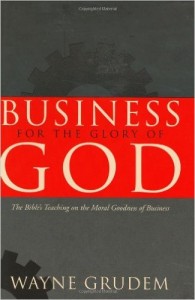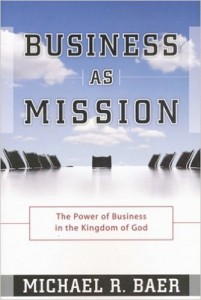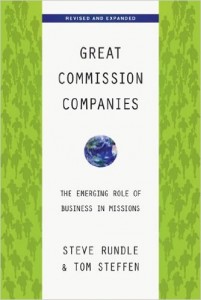Professional church planter Patrick Lai provides an in-depth reference for tentmakers--business-as-mission practitioners operating in regions of great antagonism to the Christian message. Those who are unfamiliar with the world of tentmaking will find valuable information to introduce them to the concept and to help in getting started. Designed to be a manual, Tentmaking is more than just an overview of questions and issues. Business for Transformation (B4T) focuses on answering the question: How do you start a business that transforms communities of unreached peoples? Starting a business cross-culturally involves thousands of decisions. Until now, BAM (Business as Mission) and B4T practitioners have been lacking a tool that explains how to start a business that engages unreached people for Jesus' sake. Patrick unpacks the Biblical concept of avodah to help us understand work, service and worship as interchangeable and to help us better translate avodah into the English language, he introduces us to the new word, workship. Can business activity in itself be morally good and pleasing to God? Sometimes business can seem so shady-manipulating the "bottom line," deceiving the consumer, or gaining promotions because of whom you know. But Wayne Grudem introduces a novel concept: business itself glorifies God when it is conducted in a way that imitates God's character and creation. He shows that all aspects of business, including ownership, profit, money, competition, and borrowing and lending, glorify God because they are reflective of God's nature. Though Grudem isn't naïve about the easy ways these activities can be perverted and used as a means to sin, he knows that Christians can be about the business of business. More than one quarter of the world's people have little or no opportunity to hear the gospel. While few of the unreached care to investigate the claims of Christ, they are concerned about their own economic advancement. This is an opportunity for the gospel. On Kingdom Business proposes a new model for using business in missions: kingdom entrepreneurship. Kingdom entrepreneurs are "job-makers," starting for-profit businesses of all sizes-real businesses that meet real needs. On Kingdom Business provides a conceptual foundation for kingdom entrepreneurship and explores its contemporary development using case studies of kingdom businesses and reflecting on the lessons kingdom entrepreneurs have already learned. We are living in the Business Age. The historic role of nation states is rapidly being replaced by the corporation. Like never before, Christian business leaders have the chance to play a pivotal role in transforming society and spreading the gospel. But seizing this opportunity requires thinking differently about God, about his kingdom, about his purposes in the world, and about business. Business as mission has emerged as a significant new model for mission in the twenty-first century. Today's globalized economy has created strategic opportunities for Christian business enterprises in some of the most unlikely corners of the world. In this landmark book, economist Steve Rundle and missiologist Tom Steffen offer their paradigm for the convergence of business and missions--the Great Commission Company. Such companies intentionally create businesses in strategic locations, pursuing profits while remaining unabashedly Christian in their purpose. By establishing authentic businesses that employ local workers among the least-reached peoples of the world, they contribute to the economic health of the immediate community and also provide avenues for both physical and spiritual ministry. We see the needs. We hear the cries. We listen to the emotional appeals to sacrifice and to be generous with all we have. So we give. But we give without knowledge. We give without understanding and viable relationships. In our ignorance, the very gift we have given to help so often destroy. This book is a tour of our own culture and the many ways our money destroys those it was intended to benefit. It also shows us how we churches, foundations and individuals can apply timeless principles so we can know our stewardship of Gods resources is accomplishing Gods purposes both in our lives and in the lives of those who will die if we dont learn to give wisely. The notion that labor for profit and worship of God are now, and always have been, worlds apart, is patently false. The Early Church founders were mostly community leaders and highly successful businesspeople. The writing of the Gospels was entrusted to Luke, a medical doctor; Matthew, a retired tax collector; Mark, the manager of a family trust; and John, a food supplier. Lydia was "a dealer in purple cloth." Dorcas was a clothes designer. Ed Silvoso focuses on the heart of our cities, which is the marketplace. Yet the perceived wall between commercial pursuit and service to God continues to be a barrier to advancing His kingdom. Silvoso shows Christians how to knock down that wall--and participate in an unparalleled marketplace transformation. Business as mission (BAM), an emerging concept and developing ministry, has drawn fascination in missions and business circles. BAM embodies the practice of using business strategically accomplishing missional purposes. Though the term is ubiquitous in mission circles, there is disparity between its meaning. There has been much theoretical discussion about BAM but far less research accomplished on how it happens out in reality. The Missional Entrepreneur takes an in-depth look at business as missions in action with an eye to expose the most effective principles and practices of this movement. OPEN USA is an Amazon Associate and will earn commission from qualifying purchases.B4T Resources
Interested in learning more about the B4T movement?
We recommend the following books.
WORKSHIP: Recalibrate Work & Workship
Patrick Lai
Tentmaking
Patrick Lai
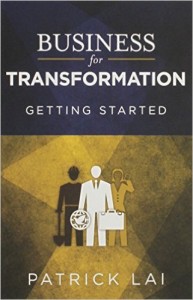
Business for Transformation
Patrick Lai
Patrick Lai – Workship
Business for the Glory of God
Wayne Grudem
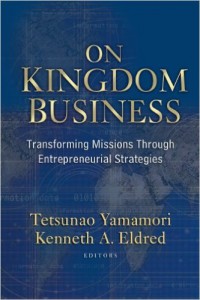
On Kingdom Business
Tetsunao Yamamori
Business as Mission
Michael R. Baer
Great Commission Companies
Steven Rundle, Tom A. Steffen
Giving Wisely
Jonathan Martin
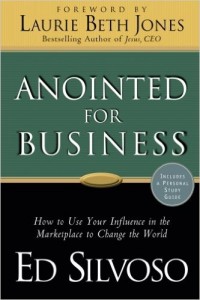
Anointed for Business
Ed Silvoso
The Missional Entrepreneur
Mark Russell
In the beginning, God created “work” and “worship” to be one. He never intended there be a divide between what we consider “sacred” and “secular” work. In this book, Patrick Lai walks us through biblical passages and concepts of God’s view of work and of worship—encouraging us to recalibrate our ideas and challenging us to do God-glorifying “workship” in our everyday life and work.


